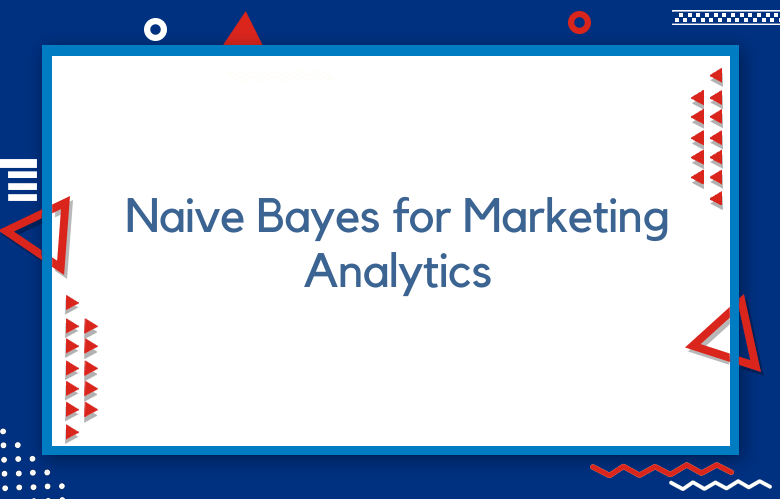How to Make Money with AI in 2025: Latest Trends and Strategies

Welcome back to our channel. Today, we’re diving deep into AI and how you can rake in the big bucks with it in 2025. We’re diving into artificial intelligence and discovering how it can help you make money in 2025. But before we get started, hit that subscribe button and ring the notification bell so you never miss out on our cutting-edge tech and business insights.
What is AI, and Why is it Important?
AI, or artificial intelligence, refers to the ability of machines and computers to perform tasks that usually require human intelligence, such as understanding language, recognizing objects, and making decisions.
AI is a field of computer science and engineering that focuses on creating machines and systems that can perform tasks that usually require human intelligence.
This includes speech recognition, natural language processing, computer vision, and machine learning.
There are many reasons why it’s essential! AI can potentially transform many industries and improve our lives in various ways.
It can help us automate tasks, improve healthcare, create more efficient and sustainable systems, and advance scientific research and discovery.
It can also help us understand complex problems and make better decisions, which can positively impact society as a whole.
AI is a rapidly developing field with much potential for positive change.
It’s an exciting time to be alive, and I think we’ll continue to see AI become increasingly prevalent in our daily lives in the future.
AI Trends in 2025
Before we pack our bags for this adventure, let’s take a sneak peek into the future. In 2025, AI will dominate various industries, from healthcare to finance.
The demand for AI solutions will skyrocket, opening up opportunities for you.
Here are a few key areas to explore:
Job growth:
The demand for AI professionals is expected to increase significantly, with estimates suggesting a 40% growth in AI job openings by 2025.
This means you will have ample opportunities to pursue your passion for AI and make a meaningful impact in various industries.
Innovation:
The advancements in AI are opening up new possibilities for innovation.
As a professional in this field, you’ll have the chance to work on cutting-edge projects and contribute to developing AI technologies that can improve people’s lives.
Career progression:
With the increasing demand for AI skills, you’ll have numerous career growth and development opportunities.
Whether you’re interested in management, research, or entrepreneurship, there will be numerous paths for you to explore and advance your career.
Global reach:
With the rise of remote work and the increasing adoption of AI worldwide, you’ll have the opportunity to work on projects that transcend geographical boundaries.
How to Make Money with AI
Now that we’ve got our compass set, let’s talk about how you can make money with AI. There are several avenues you can explore.
AI Consulting Services:
Making money with AI consulting services can be lucrative if you have the expertise and can provide value to clients. Here are steps to help you get started and succeed in the AI consulting industry
Learn AI and Machine Learning
Start by learning the basics of Artificial Intelligence (AI) and Machine Learning (ML). You can find online courses, tutorials, and books to help you understand these technologies.
Gain Practical Skills
Practice what you learn by working on AI and ML projects. Start with small projects and gradually move on to more complex ones.
Step 3: Build a Portfolio
Create a portfolio showcasing your AI projects. This could be a simple website or document describing your work, results, and any relevant code.
Step 4: Choose a Niche
Decide on an area or industry where you want to offer your AI consulting services. Examples include healthcare, finance, and e-commerce.
Step 5: Set Up Your Business
Register your consulting business, obtain the required licenses, and set up a professional-looking website.
Step 6: Define Your Services
Determine the AI services you will provide. This could include AI strategy, data analysis, or building AI models.
Step 7: Decide on Pricing
Set your prices based on your expertise and the complexity of the projects you take on. Consider offering different packages for different budgets.
Step 8: Promote Your Business
Use online and offline marketing strategies to reach potential clients. This includes creating social media profiles, writing blog posts, and attending local events or meetups.
Step 9: Network
Connect with professionals in your chosen niche and attend industry events. Networking can help you find clients and collaborators.
Step 10: Find Clients
Contact potential clients through email, social media, or in-person meetings. Offer free consultations or workshops to demonstrate your expertise.
Step 11: Deliver Exceptional Service
Focus on providing high-quality results and excellent customer service. Keep clients informed and meet their expectations.
Step 12: Ask for Referrals
After successful projects, ask clients for referrals or testimonials that can help you attract more business.
Step 13: Keep Learning
Stay updated with the latest AI developments and continue improving your skills.
Step 14: Grow Your Business
As you gain more clients and experience, consider expanding your team or offering additional AI-related products or solutions.
Success in AI consulting takes time and effort, but you can build a profitable consulting business by following these steps and continuously improving your skills.
AI-Enhanced Products
Create AI-powered products that make people’s lives easier. Think smart homes, wearables, and more.
Here’s a step-by-step guide on how to develop and monetize AI-enhanced products
Step 1: Identify a Problem or Opportunity
Start by identifying a problem or opportunity where AI technology can provide a valuable solution. Consider pain points in various industries or everyday life.
Step 2: Market Research
Conduct market research to understand the demand for your AI-enhanced product. Analyze competitors and potential customers to refine your product concept.
Step 3: Build Your AI Skills
If you’re not proficient in AI, acquire the necessary skills or hire AI experts to help you develop the technology.
Step 4: Develop the AI Model
Create or implement the AI model that will power your product. This could be natural language processing, computer vision, recommendation systems, or any other AI technology that suits your idea.
Step 5: Data Collection and Training
Gather relevant data to train your AI model. High-quality data is essential for AI success. Ensure the data is clean, labeled, and representative of the problem you’re solving.
Step 6: Design the User Interface (UI)
Develop an intuitive and user-friendly interface for your product. A well-designed UI can significantly impact user adoption and satisfaction.
Step 7: Integration
Integrate your AI model with the user interface and other necessary product components.
Step 8: Testing and Quality Assurance
Thoroughly test your AI-enhanced product to identify and fix any bugs or issues. Ensure it performs reliably and provides accurate results.
Step 9: Launch
Launch your product in the market. Depending on your target audience and platform, you can release it as a web application, mobile app, software, or hardware.
Step 10: Marketing and Promotion
Develop a marketing strategy to promote your AI-enhanced product. Utilize digital marketing, social media, content marketing, and other channels to reach your target audience.
Step 11: Pricing Strategy
Determine your pricing strategy based on factors like production costs, market demand, and the perceived value of your AI-powered features.
Step 12: Provide Customer Support
Offer excellent customer support to address user inquiries, troubleshoot issues, and gather feedback for product improvement.
Step 13: Continuous Improvement
Continuously update and improve your AI model and product based on user feedback and changing market needs.
Step 14: Monetization
Consider different monetization strategies, such as subscription models, one-time purchases, or freemium options, depending on your product and target audience.
Step 15: Scale
As your product gains traction and generates revenue, explore opportunities to scale your business by expanding your product offerings or entering new markets.
Remember that AI-enhanced products require ongoing maintenance and improvement to stay competitive and meet evolving user expectations.
Building a successful AI product may take time, but it can become a profitable venture with dedication and a focus on delivering value.
AI Content Creation
AI content creation uses artificial intelligence to generate written, visual, or audio content.
It can be a lucrative business if done effectively. Here’s a step-by-step guide on how to make money with AI content creation:
Step 1: Understand AI Content Creation
Familiarize yourself with AI tools and platforms designed for content generation. These can include natural language processing models for text, image generation models for visuals, and text-to-speech models for audio.
Step 2: Identify Your Niche
Determine the specific niche or industry where you want to offer AI-generated content services. This could be anything from blog posts and marketing materials to video scripts and social media content.
Step 3: Acquire AI Tools and Software
Invest in AI content creation tools or software that align with your chosen content types. Some popular options include GPT-3, OpenAI’s DALL-E for images, and text-to-speech engines like Google’s WaveNet.
Step 4: Develop Custom Models (Optional)
If you have the expertise, consider building custom AI models tailored to your niche or specific content needs. This can give you a competitive edge.
Step 5: Create High-Quality Samples
Generate sample content using AI tools to showcase your capabilities. Ensure the quality and relevance of the content to demonstrate your value to potential clients.
Step 6: Set Up Your Business
Register your content creation business and create a professional website to showcase your services and samples.
Step 7: Pricing Strategy
Determine your pricing structure based on content length, complexity, and the specific AI tools or models you use.
Step 8: Marketing and Promotion
Develop a marketing strategy to reach potential clients. Utilize online marketing channels, create a portfolio, and highlight the quality of your AI-generated content.
Step 9: Build a Client Base
Reach out to potential clients or businesses benefitting from AI content creation services. Networking and referrals can also help you find clients.
Step 10: Deliver Quality Content
Create AI-generated content that meets or exceeds your client’s expectations. Ensure that it aligns with their brand voice and goals.
Step 11: Communication
Maintain clear communication with your clients throughout the content creation process. Address any revisions or adjustments promptly.
Step 12: Manage Copyright and Ethics
Be aware of copyright issues and ethical considerations related to AI content creation. Ensure that the content you generate complies with legal and ethical standards.
Step 13: Expand Your Services
Consider offering a range of AI-generated content services, such as content planning, editing, or content strategy consulting, to cater to different client needs.
Step 14: Seek Feedback and Referrals
Encourage clients to provide feedback and testimonials. Satisfied clients can become valuable sources of referrals.
Step 15: Stay Updated
Continuously learn about new AI models, techniques, and improvements to stay at the forefront of AI content creation.
AI content creation can be a lucrative business. Still, staying innovative, ethical, and focused on delivering value to your clients is essential to building a successful venture in this field.
AI in e-Commerce
Leveraging AI in eCommerce can significantly improve customer experiences, increase sales, and streamline operations.
Here’s a step-by-step guide on how to make use of AI in eCommerce to boost your business:
Step 1: Understand AI in eCommerce
Familiarize yourself with the various applications of AI in eCommerce, including personalization, recommendation engines, chatbots, inventory management, fraud detection, and more.
Step 2: Identify Your Goals
Determine specific goals and objectives for implementing AI in your eCommerce business. Are you looking to increase sales, improve customer service, optimize operations, or enhance user experiences?
Step 3: Analyze Your Data
Gather and analyze your eCommerce data, including customer behavior, purchase history, website traffic, and inventory data. Clean and organize this data for AI applications.
Step 4: Choose AI Solutions
Select the AI tools or solutions that align with your eCommerce goals. These could include recommendation engines like collaborative filtering, chatbots, AI-powered search, or dynamic pricing algorithms.
Step 5: Implement Personalization
Implement AI-driven personalization to tailor product recommendations, emails, and website content to individual customer preferences and behaviors.
Step 6: Enhance Search and Navigation
Use AI to improve search functionality on your eCommerce site. Implement natural language processing to understand user queries and provide more relevant results.
Step 7: Integrate Chatbots and Virtual Assistants
Deploy AI-powered chatbots and virtual assistants to provide instant customer support, answer inquiries, and guide users through buying.
Step 8: Optimize Inventory Management
Use AI to predict demand, manage inventory levels, and optimize supply chain operations. This helps reduce overstock and stockouts, leading to cost savings.
Step 9: Implement Fraud Detection
Protect your e-commerce business from fraud using AI algorithms to detect suspicious transactions and activities in real time.
Step 10: A/B Testing
Continuously test and optimize your AI implementations through A/B testing to ensure they deliver the desired results.
Step 11: Monitor and Analyze Performance
Regularly monitor the performance of your AI systems and analyze key metrics like conversion rates, customer satisfaction, and revenue.
Step 12: Stay Compliant
Be aware of data privacy and compliance regulations, such as GDPR or CCPA, and ensure your AI systems adhere to these regulations.
Step 13: Provide Training and Support
Train your staff to work effectively with AI tools and support customers interacting with AI-powered features.
Step 14: Scale and Expand
As you see positive results, consider expanding your AI implementations or exploring new AI applications to improve your eCommerce business further.
Step 15: Stay Updated
Keep up with the latest AI advancements and trends in the eCommerce industry to remain competitive and innovative.
Integrating AI into your eCommerce operations can improve customer satisfaction and increase sales and operational efficiency.
It’s essential to carefully plan and implement AI solutions to achieve your business objectives successfully.
Success Stories
To keep your wanderlust alive, let’s hear from individuals who’ve successfully made money with AI.
Geoff Hinton – Pioneer of Deep Learning:
Geoff Hinton is a renowned computer scientist and one of the pioneers of deep learning and neural networks.
His work laid the foundation for many breakthroughs in AI, including image and speech recognition.
In 2019, he received the Turing Award, often called the “Nobel Prize of Computing,” for his contributions to the field.
Fei-Fei Li – Advancing AI in Healthcare:
Fei-Fei Li, a computer scientist and professor at Stanford University, has made significant contributions to AI, particularly in healthcare.
She co-founded AI4ALL, a nonprofit organization that aims to increase diversity in AI and has been involved in projects using AI to improve medical imaging and diagnosis.
Demis Hassabis – Co-Founder of DeepMind:
Demis Hassabis is the co-founder and CEO of DeepMind, an AI company known for its groundbreaking work in deep reinforcement learning, and AlphaGo, the program that defeated the world champion in the ancient board game Go.
DeepMind’s AI has also been applied to healthcare for tasks like early detection of eye diseases.
Sebastian Thrun – Self-Driving Car Innovator:
Sebastian Thrun, a computer scientist and former Stanford professor, played a crucial role in developing autonomous vehicle technology.
He led the Stanford team that won the DARPA Grand Challenge in 2005 with a self-driving Volkswagen Touareg.
Thrun’s work laid the groundwork for developing self-driving cars by companies like Waymo.
Elon Musk – AI Entrepreneur and Technologist:
Elon Musk, a tech entrepreneur and CEO with interests spanning multiple industries, has played a notable role in the AI landscape.
While Musk is not primarily an AI researcher, he co-founded Neuralink, a pioneering neurotechnology company focused on developing brain-computer interfaces.
He was involved in founding OpenAI and remains a donor, emphasizing the importance of addressing AGI’s potential risks.
Musk’s ventures highlight his commitment to advancing AI applications and exploring innovative solutions, particularly in the context of human-machine interfaces and AI safety.
Sam Altman – AI Ethicist and OpenAI Leader:
Sam Altman is a prominent artificial intelligence figure known for his dedication to ethical AI development.
He served as the co-chairman of OpenAI, an organization committed to advancing artificial general intelligence (AGI) for the benefit of humanity.
Under his leadership, OpenAI made significant strides in AI ethics, safety, and AGI capabilities.
Altman’s contributions have shaped responsible AI research and earned him recognition as a critical advocate for the reliable and beneficial development of AI technologies.
These individuals represent just a few of the many visionaries and innovators who are propelling the field of artificial intelligence forward.
Their pioneering work, dedication to ethical AI, and transformative contributions serve as beacons of inspiration for a diverse and global community of researchers, engineers, and enthusiasts.
They are shaping a future where AI drives innovation, solves complex problems, and improves people’s lives worldwide.
Tips for Success
Before we conclude this adventure, here are some tips to make your journey into the AI world a success
Continuous Learning
Continuous learning is essential to success in any field, especially in the rapidly evolving AI landscape.
Here are some tips to keep your knowledge and skills up to date:
Stay current on industry trends: Subscribe to industry publications, follow thought leaders on social media, and attend conferences to stay informed about the latest developments in AI.
Engage in professional development: Participate in training programs, seminars, and workshops to expand your knowledge and stay ahead of the curve.
Network with other professionals: Connect with other AI experts, join professional organizations, and attend networking events to exchange ideas and learn from others in the field.
Read, read: Stay on top of the latest research and publications by reading academic papers, blogs, and articles on AI-related topics.
Experiment and build projects: Hands-on experience is the best way to deepen your understanding of AI. Consider making small projects or experimenting with new techniques to sharpen your skills.
Network and Collaborate
Networking and collaboration are essential components of success in the AI industry. Here are some tips to network and collaborate effectively:
Reach out to other professionals: Reach out to other AI experts and professionals in your network, introduce yourself, and express your interest in collaborating on projects or exchanging ideas.
Join industry groups and forums: Join industry-specific groups and forums on social media platforms or online communities to connect with other professionals and engage in discussions about AI.
Attend conferences and events: Conferences and events are great opportunities to network with other professionals, learn about new technologies, and share your expertise.
Engage in joint projects: Collaborate with other professionals on collaborative projects to share resources, expertise, and knowledge. This can lead to new opportunities, insights, and connections.
Leverage online communities: Engage with the online AI community on platforms like GitHub, Reddit, or Stack Overflow to share ideas, ask questions, and collaborate with others.
Ethical AI
Ethical AI is a critical aspect of responsible AI development and deployment.
Here are some fundamental principles to keep in mind when working with AI:
Transparency: Ensure that AI systems are transparent and explainable so that users can understand how decisions are made and the system’s functions.
Fairness: Design AI systems that are fair and unbiased, avoiding discrimination or unfair treatment based on factors such as race, gender, or socio-economic status.
Accountability: Establish clear accountability for AI systems and ensure that they are designed and deployed to minimize potential harm to individuals or society.
Human oversight: Maintain human oversight and control over AI systems, ensuring they remain under human control and are used responsibly.
Privacy: Ensure that AI systems are designed and deployed in a manner that respects individual privacy and protects personal data.
Conclusion:
AI is a rapidly evolving field with immense potential for improving our lives and advancing various industries.
As a professional in this field, it’s crucial to stay up-to-date on the latest trends and developments, network and collaborate with other professionals, and prioritize ethical AI practices in all your endeavors.
By doing so, you can contribute to the responsible development and deployment of AI and make a meaningful impact on society.
Remember, the future of AI is in our hands, and we have the power to shape its direction and ensure that it benefits everyone.
Thank you for joining us on this exhilarating journey into the world of AI and wanderlust.
Remember, 2025 is just around the corner, and AI offers endless opportunities. So, pack your bags, embrace the future, and let’s make money with AI together.
Call: +91 9848321284
Email: [email protected]



